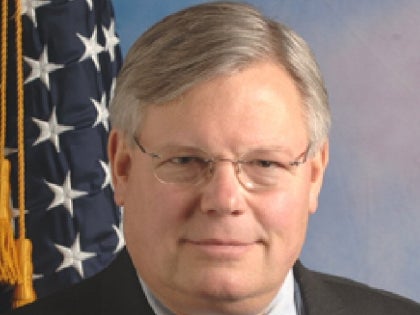
The Villager: Watershed moment on fracking? New well-review rule
By Albert Amateau
April 28, 2010
The New York City watershed, which supplies 90 percent of the city’s drinking water, will require special reviews for companies seeking state permits for high-volume, horizontal hydrofracture drilling for natural gas.
The state Department of Environmental Conservation on Friday announced that it was excluding both the New York City and the Syracuse watersheds from the environmental review for hydrofracture gas drilling in the Marcellus shale formation, which underlies the state’s Southern Tier — the southern counties of New York State that stretch west from the Catskills to the Pennsylvania border.
However, D.E.C. Commissioner Pete Grannis said in the April 23 statement that gas companies applying to drill in the two watersheds would have to submit environmental reviews for each well to determine whether measures to mitigate potential impacts could be developed.
There are currently 58 applications for hydrofracture drilling in the state, none of them in the New York City or Syracuse watersheds.
Elected officials, including Mayor Bloomberg and Manhattan Borough President Scott Stringer, welcomed the D.E.C. decision, but Stringer called for an outright drilling ban in the city watershed.
The decision on the two watersheds was made because the federal Safe Drinking Water Act requires that water from surface sources must be filtered except where Filtration Avoidance Determinations have been established for sources that comply with a strict array of water-quality criteria.
Both the New York City and Syracuse unfiltered water systems comply with F.A.D.’s, and maintaining them presents unique land-use issues, in addition to environmental safety of hydrofracture drilling, the D.E.C. statement said.
The process, known as “fracking,” involves drilling into the Marcellus shale formation — which lies more that 3,000 feet beneath the surface of northern Pennsylvania and New York’s Southern Tier — and horizontally injecting millions of gallons of water laced with highly toxic chemicals under ultra-high pressure to fracture the shale and release natural gas trapped in the formation.
New York State last September issued an 800-page draft generic environmental impact statement on proposed permit regulations, which critics say was drafted largely by the natural gas industry.
On Friday, Bloomberg said, “The city commissioned a study last year to analyze the impacts of hydrofracking in the watershed and found that it posed a significant threat to the quality of the water supply that 9 million New Yorkers rely on every day… . We are confident that the additional reviews now required for any drilling proposal in the watershed will lead the state to that same conclusion.”
Stringer said D.E.C. deserves praise for recognizing the special status of the Catskill/Delaware watershed, but added, “The state should go the full distance and enact a ban.”
City Council Speaker Christine Quinn and James Gennaro, the Council’s Environmental Committee chairperson, issued separate statements, recalling two years of advocacy against hydrofracking in the watershed.
“While my colleagues and I are disappointed that the state did not ban drilling in the watershed outright, we applaud this decision as a good first step,” Quinn said.
Gennaro said he was proud of the role the Council played in “elevating the issue to the national stage,” and pledged to work with Governor Paterson’s administration to resolve remaining issues involved with hydfrofracking.
Assembly Speaker Sheldon Silver said in a statement that he was pleased with the decision, adding, “I strongly believe the state should take no further action toward the approval of permits in any drinking-water-sensitive area in New York State until the U.S. Environmental Protection Agency completes its [nationwide] study of hydrofracking, and companies are required to fully disclose all chemicals used in the drilling process.”
State Senator Tom Duane was skeptical, however, saying only a statewide drilling ban was acceptable.
“While ostensibly this is a step in the right direction to protect New Yorkers from this risky gas drilling technology, I fear it is a cynical move that will pit New Yorkers against each other,” Duane said. “Residents in New York and Syracuse will benefit from this decision while those in Ithaca and Jamestown will not.”
Duane feared that once large energy companies get a foothold in the state it would only be a matter of time before they convince D.E.C. that drilling in unfiltered water supplies is safe.
On April 15, the debate over fracking in New York State moved to The Cooper Union where a panel of experts told a packed audience that the process threatens the air we breathe, as well as the water we drink.
To read the full article click here.